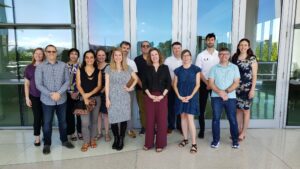
Ensuring Sustainable Water Management Through Intermittent Systems
Access to clean and accessible water is a basic human need, but there are over one billion people throughout the world who only have access to water at certain hours and/or days each week, with some receiving their drinking water from piped intermittent water systems that go through periods of stagnation that can lead to public health issues.
Today in the U.S., intermittent water systems are not common, but according to the 2021 United Nations world development report, there is an expectation that by 2040 over 50% of the world’s population will experience water scarcity issues. Therefore, there is a need to better understand intermittent water systems and their role in delivering drinking water to households around the world and possibly here in the U.S.
Diving Into Unpredictable Water Supplies
The Household Water Insecurity Experiences (HWISE) Research Coordination Network (RCN) hosted a workshop on January 9-10, 2023, at the University of Miami entitled, Causes, Consequences, and Measurement of Unpredictable Water Supplies: An Underlying Driver of Water Insecurity. The workshop was held to discuss and identify research gaps with intermittent water systems and to look for ways such as standardization to help address challenges with water scarcity and variability.
Matt Sigler, PMG Executive Director for the International Code Council, attended the workshop to engage in the discussions and build interest in Code Council standards that will cover intermittent water systems on a global scale.
“The Code Council is honored to be working with the University of Miami, University of Massachusetts Amherst, Michigan State University, North Carolina State University and others on such a research project that can be used to help standardize such systems to ensure the safe delivery of drinking water,” said Sigler.
The Code Council has partnered with the University of Miami on developing two new global standards that will address right-sizing plumbing pipe systems in residential, mixed-use and institutional occupancies (ICC 815), and designing, installing, operating and maintaining decentralized wastewater treatment systems that are resilient to climate change (ICC 825).

Resources for Clean Water Delivery
As factors like extreme weather, a changing climate and human activity continue to play a role in creating unpredictable water supply, it is important to consider the use of intermittent systems as a way of ensuring sustainable water management.
The Code Council has resources available to address the safe delivery of clean water to our homes, business and communities by way of building codes and industry standards.
View the Code Council’s PMG page to learn more or reach out to your local PMG Team Representative.








